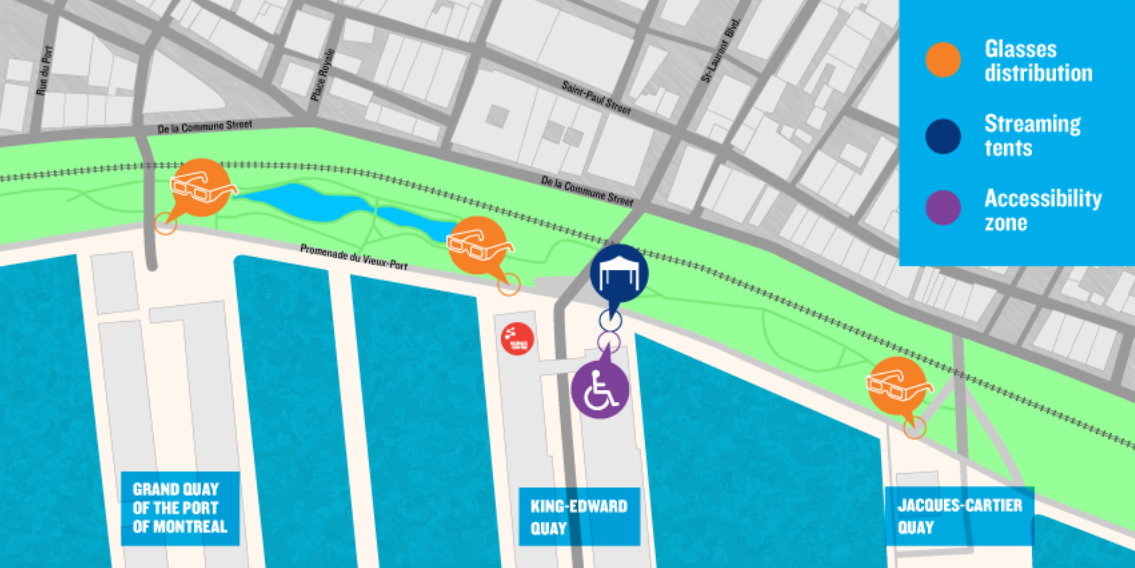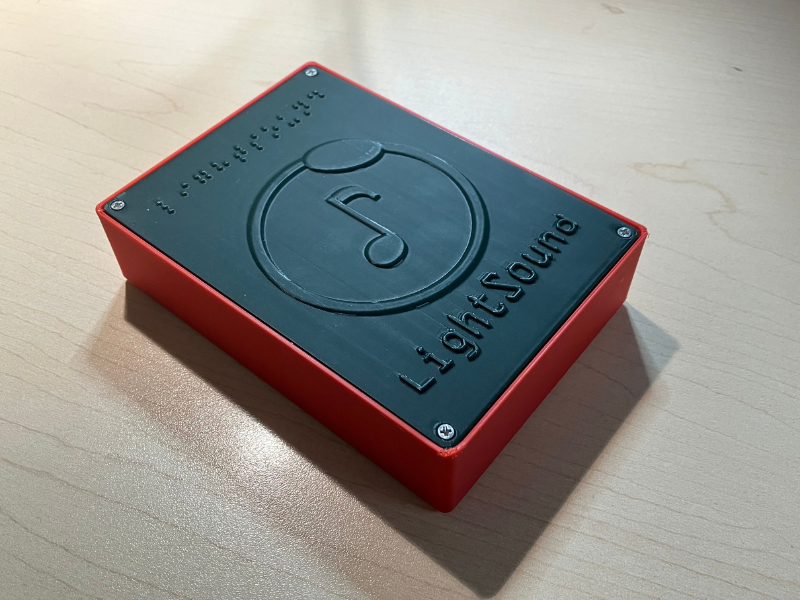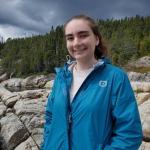Total Solar Eclipse at the Science Centre: A Special Accessibility Zone for the Occasion
On April 8th, 2024, people living in parts of southern Québec will have a chance to witness a total solar eclipse. This is an unusually rare astronomical event, in fact, it’s the event of a lifetime! The Montréal Science Centre will be a free official viewing location. Free eclipse glasses will be available, scientific activities will be presented, and —since the event will be presented by Cirque du Soleil— there will even be circus acts! The Science Centre wants to give everyone a chance to take part in this special event and has prepared an accessible area for eclipse watchers with special needs and their companions.
Where is the Accessibility Zone and when does it open?
The Accessibility Zone will open at 1pm and will be located next door to the Science Centre, on the terrasse of the building hosting the immersive Horizon of Khufu experience. The zone’s accessible entrance will be located right under the glass footbridge. A Science Centre employee will be stationed at the entrance to welcome visitors.
Eclipse glasses will be available to anyone watching the eclipse from the Accessibility Zone. A science educator will also be on hand to answer questions and Cirque du Soleil artists will offer eclipse watchers a few performances too!
The Zone is designed to offer every family or small group a worry-free way to enjoy this spectacular celestial event. The Zone is in a quieter area away from the crowds and is accessible, allowing visitors to come and go easily. Seats will also be available to anyone who might need one.

Who can use the Accessibility Zone?
The Accessibility Zone is primarily designed for three types of audiences: visitors with mobility limitations, visitors with low vision or vision loss, and neurodivergent visitors. Those accompanying them are also welcome, of course.
The Accessibility Zone is a first-come, first-served area. The Accessibility Zone can welcome about 27 groups of 4 at any given time, but no reservations can be made for this area (just like no reservations can be made to watch the eclipse in front of the Science Centre).
LightSound: Making the eclipse a more universal experience
The LightSound device is designed to offer people with low vision and vision loss a sonic way to experience the eclipse. Developed by researchers at Harvard University, the device has a light sensor and a small processor that captures the changing intensity of surrounding light… and converts it to sound!
The Science Centre was lucky enough to get two LightSound devices for the big day and both will be available in the Accessibility Zone. A Science Centre employee will be there to explain how they work and give a helping hand to visitors who wish to use one.
The LightSound project is open source, which means that anyone who wants to make one themselves can do so using its design plans and assembly instructions.

Tell your friends about the Accessibility Zone! We can’t wait to welcome you and help everyone make the best of the total solar eclipse event!
